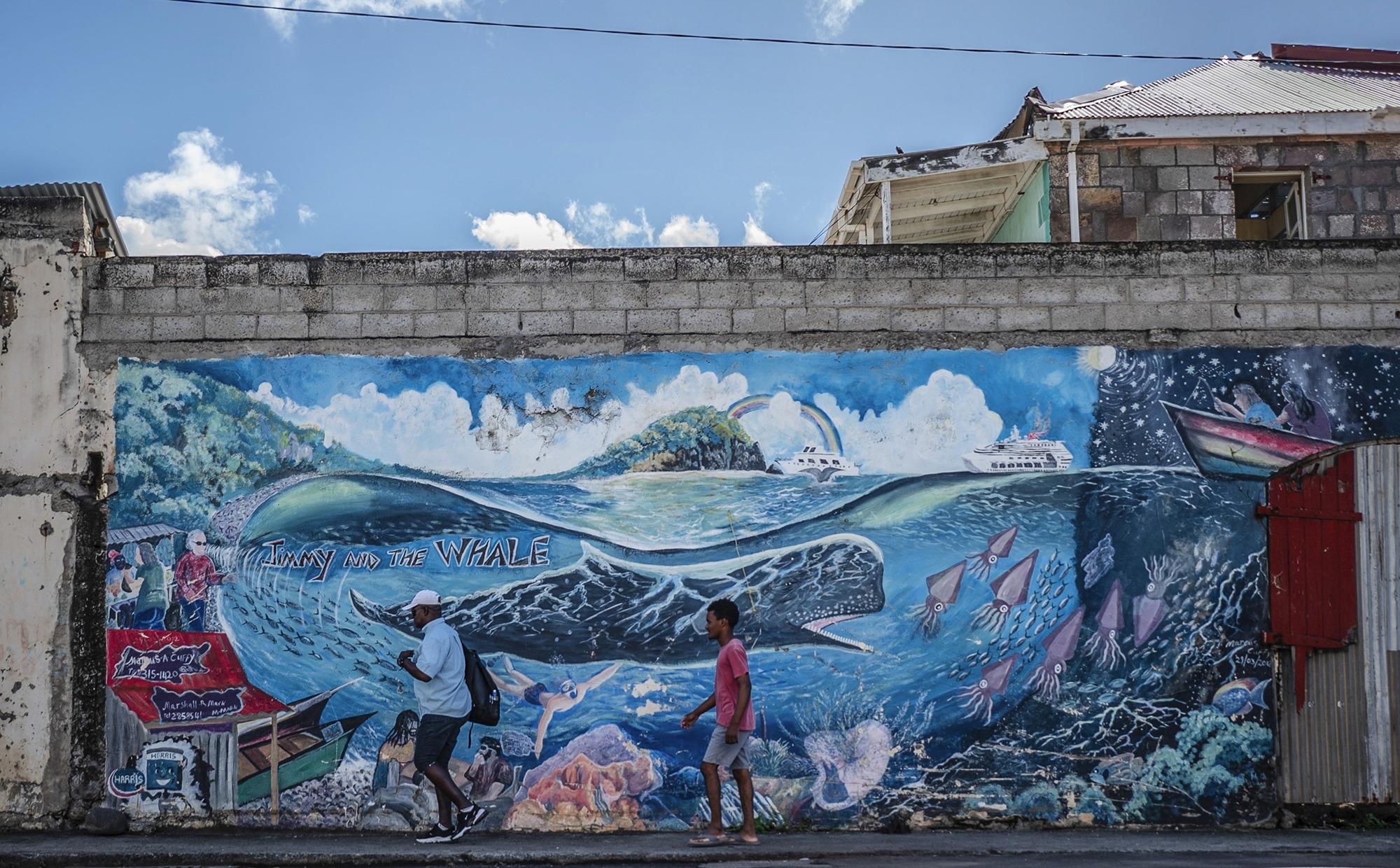 People walk past a mural of a whale created by artist Marcus Cuffi in Roseau, Dominica, on Nov 12, 2023. (PHOTO / AP)
People walk past a mural of a whale created by artist Marcus Cuffi in Roseau, Dominica, on Nov 12, 2023. (PHOTO / AP)
SAN JUAN, Puerto Rico — The tiny Caribbean island of Dominica is creating the world's first marine protected area for one of Earth's largest animals: the endangered sperm whale.
Nearly 800 square kilometers of royal blue waters on the western side of the island nation that serve as key nursing and feeding grounds will be designated as a reserve, the government announced on Monday.
"We want to ensure these majestic and highly intelligent animals are safe from harm and continue keeping our waters and our climate healthy," Dominica Prime Minister Roosevelt Skerrit said in a statement.
Scientists said the reserve will not only protect the animals, but will also help fight climate change.
Sperm whales dive to hunt squid, then return to the surface where they breathe, rest and defecate. Sperm whales defecate near the surface because they shut down nonvital functions when they dive to depths of up to 3,000 meters.
As a result, their nutrient-rich feces foster plankton blooms that capture carbon dioxide from seawater. When the plankton dies, it becomes a carbon sink, helping mitigate the impacts of climate change.
And sperm whales in Dominica are believed to defecate more than whales elsewhere, said Shane Gero, a whale biologist and founder of the Dominica Sperm Whale Project, a research program focused on sperm whales in the eastern Caribbean.
Unclear reason
It is unclear why sperm whales seem to defecate more in Dominica. Gero said it could be that they are eating twice as much, or maybe there is something particular about the type of squid they are eating.
"In some respects, sperm whales are fighting climate change on our behalf," Gero said in an interview.
Around 500 sperm whales are estimated to live in the waters surrounding Dominica, part of a population that moves along the Lesser Antilles chain, swimming as far south as St. Vincent and north into Guadeloupe. Unlike sperm whales elsewhere in the world, the ones around the eastern Caribbean do not travel very far, Gero said.
He noted that sperm whales are a matrilineal society, with young males leaving and switching oceans at some point in their lives. As a result, protecting the species is key, especially if few female calves are born.
"One calf being entangled can mean the end of a family," Gero said.


